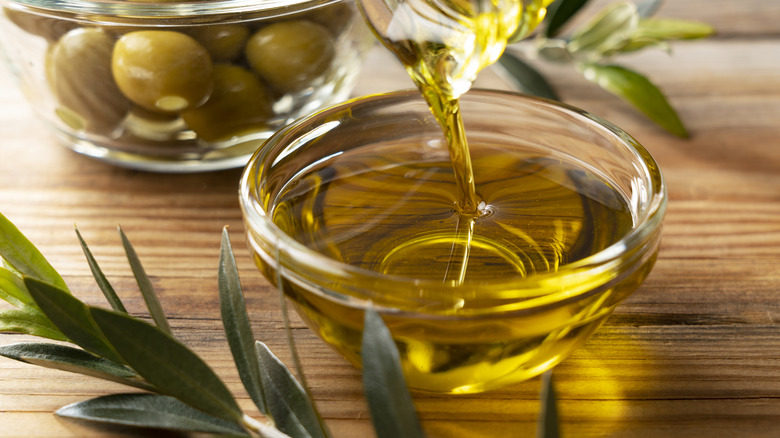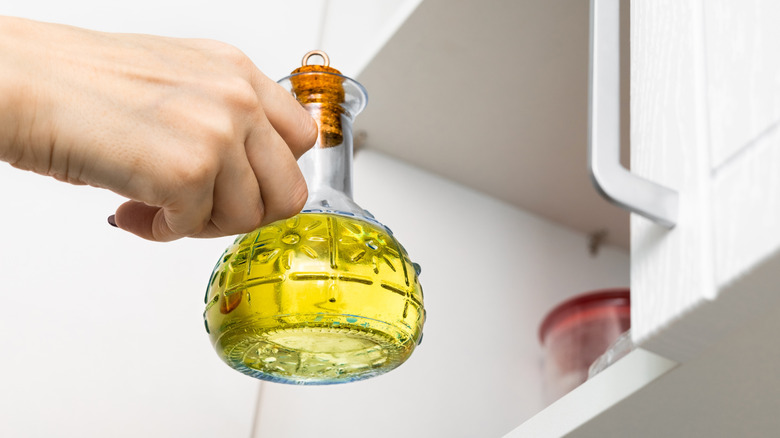How To Tell If Your Olive Oil Is Still Fresh
Around the globe, olive oil is a cooking staple you'll find in countless households. You're especially sure to find it sitting in people's kitchens in places like Spain, Italy, and the United States, which are three of the world's top consumers of the condiment. But even with the ingredient's prominence in a variety of cuisines, not everyone can run through a bottle of the stuff as quickly as they'd like, leaving people to eventually determine if their olive oil has gone bad or not.
Discerning whether olive oil has spoiled isn't as clear-cut as it is with other foods, like fuzzy berries or clumpy milk that obviously needs to be thrown out. This is because the oil's appearance, such as its color, isn't the single best indicator of spoilage. Rather, there are a few other subtle clues to look out for related to the oil's taste and scent when trying to decide if it should be tossed.
Signs your olive oil has spoiled
Before turning your olive oil into caramel topping, using it to create an ultra creamy chicken fettuccine Alfredo — or doing anything else with it for that matter — it's best to give the ingredient a quick sniff test. Olive oil that's in good condition will smell bright and grasslike. Depending on the exact type of olive used in the product, it can even smell floral or fruity. Old olive oil, on the other hand, will lose its potency. Instead, it will come off as musty or flat. The waxy scent might be comparable to crayons or elementary school glue, according to Brightland.
If a whiff of your product isn't providing the information you need, it's time to taste-test your olive oil. Fresh olive oil will taste similar to how it smells. A spoonful elicits a grassy flavor; like a blend of fresh herbs, mixed with fruity notes and a buttery feel. It's also common for high-quality oils to have an almost peppery aftereffect that leaves you with a faintly spicy sensation in your mouth. Spoiled olive oil will taste just the opposite. And if it's not stale, it will likely be sour or bitter. Either of these changes in flavor is enough reason to toss it out.
How to properly store olive oil
Olive oil typically has a shelf life of anywhere between 18 to 24 months. But once it's opened, it's best to use it within two months — giving it the boot at three to four months at most. However, the key to making your olive oil last as long as possible is proper storage. Similar to many other condiments like fish sauce and vinegar, olive oil fares best when it's kept away from heat, light, and air.
To avoid exposure to these elements, keep your olive oil in a tin or dark glass container that stops sunlight from reaching it. A clear container should only be used by those who plan to use the oil very quickly. Your olive oil should also be kept away from the heat of your stove. Rather, a cool, dark place, such as the pantry or a kitchen cabinet, would be the most suitable place to store your oil. Exposure to poor conditions can lead your olive oil to not only develop a funky taste, but it can cause extra virgin olive oil to lose important antioxidants and other nutrients that qualify it as EVOO in the first place. Know what to look for so you can enjoy the freshest olive oil possible.


